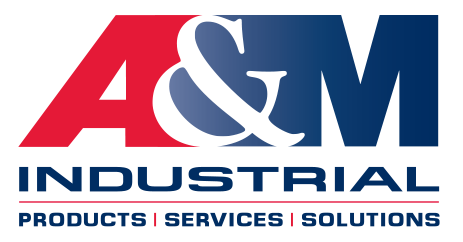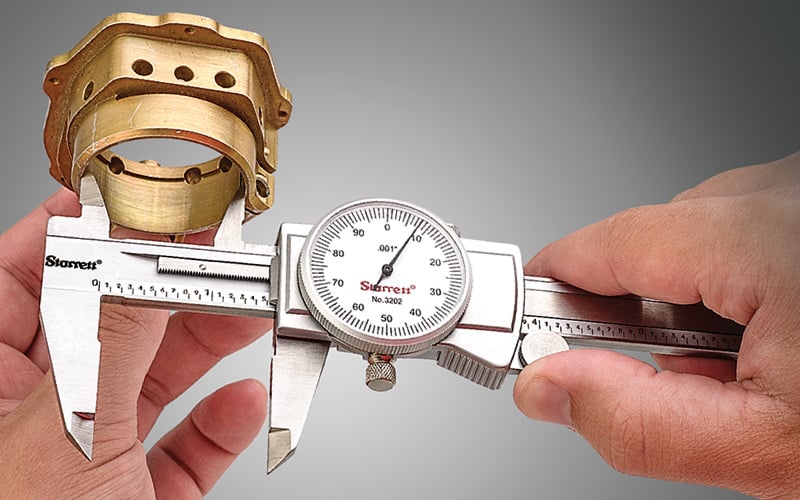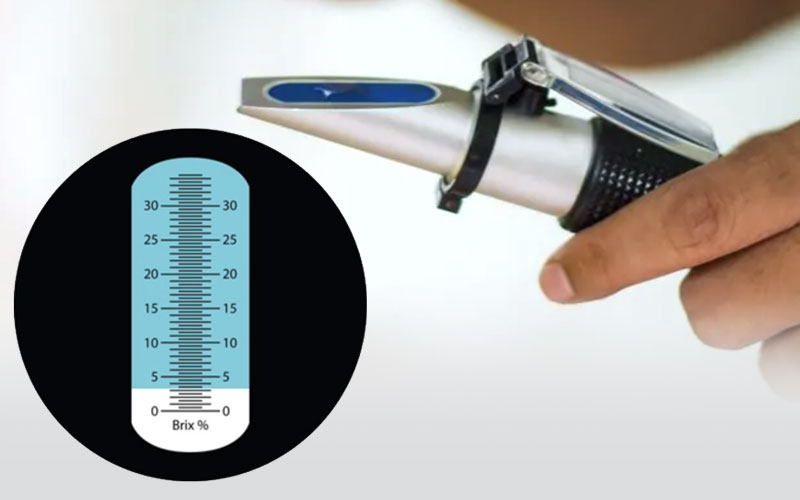Essential Precision Measuring Tools For Industrial Manufacturing
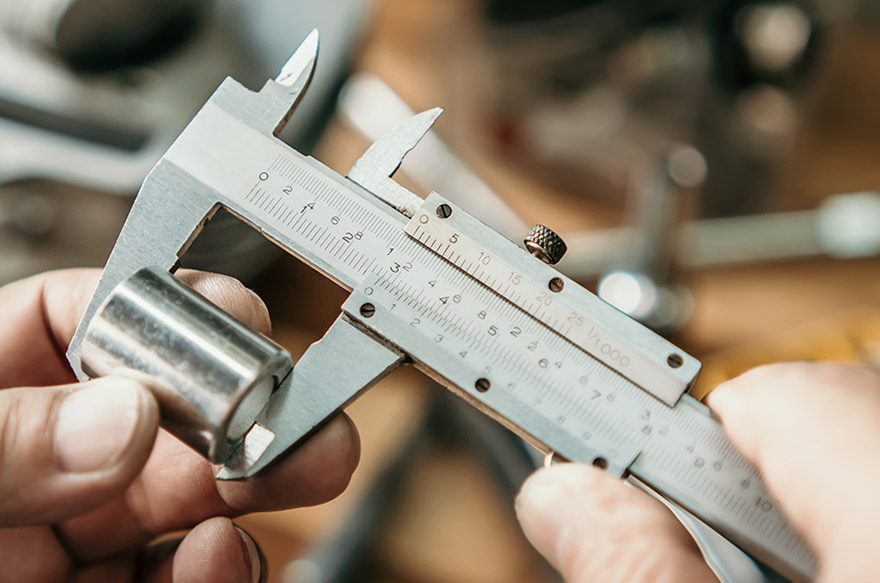
Imagine a world without precision measuring tools in industrial manufacturing. It would be like trying to navigate through a dense forest without a compass or GPS. These tools are the unsung heroes of the manufacturing world, ensuring accuracy and quality in every product that rolls off the assembly line. In today's blog post, we will take a closer look at some of the essential precision measuring tools used in industrial manufacturing and metalworking.
Calipers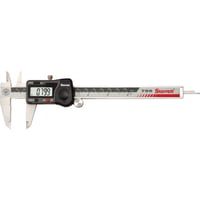
When it comes to versatility and precision, calipers take the crown. These handy tools are used to measure dimensions, both inside and outside, with an impressive level of accuracy. Calipers come in various forms, but the most common are vernier, digital, and dial calipers. Whether you need to measure the thickness of a material, the diameter of a hole, or the depth of a groove, calipers can do it all. They're like the Swiss army knife of measuring tools!
Micrometers
Sometimes, even calipers can't provide the level of precision required for certain measurements. Enter micrometers! These tools are specifically designed to measure extremely small dimensions with utmost accuracy. Micrometers utilize a spindle and anvil mechanism to measure items such as the thickness of thin materials, the diameter of wires, or even the depth of small holes. If you're looking to measure to the nearest thousandth of an inch, micrometers are your go-to tools.
Height Gauges
When it comes to measuring the height of objects or marking precise vertical distances, height gauges step up to the plate. These tools consist of a base, a vertical column, and a measuring head. With a solid and stable design, height gauges are perfect for measuring heights, depths, or step distances accurately. They are often employed for tasks such as setting up milling machines, measuring the height of workpieces, or checking the parallelism of surfaces.
Dial Drop Indicators
Dial drop indicators are precision measuring tools used to detect small variations in height or depth. They consist of a small dial gauge attached to a movable arm with a pointed tip. You place the indicator on the surface you want to measure, and as you move the arm, the dial provides accurate readings of the distance traveled. With their ability to measure deviations as small as 0.001 inches (0.02 mm), dial drop indicators provide unparalleled accuracy. This makes them ideal for tasks that demand meticulous attention to detail.
Bore Gages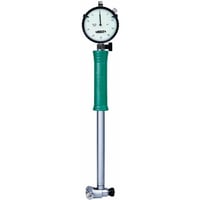
Bore gages are specialized tools used to measure the inner diameter of a hole. They come in various forms, including telescopic, two-point, three-point, and dial bore gages. These versatile instruments are designed to provide accurate and reliable measurements, even in hard-to-reach places or with irregularly shaped holes. Bore gages typically consist of a measuring head attached to a handle or a base. The measuring head contains a set of spring-loaded anvils or contacts, which are gently inserted into the hole being measured. As the measuring head is withdrawn, the anvils move apart, indicating the diameter of the hole on a scale or dial. In precision manufacturing processes, bore gages are essential for ensuring the correct dimensions of drilled holes, ensuring a snug fit for components or fasteners.
Depth Gages
Depth gages are tools designed to measure the depth or thickness of an object with precision. They are commonly used in various industries, such as construction, engineering, woodworking, and metalworking. Digital depth gages offer fast and accurate measurements, often with additional features like data storage and conversion between different units of measurement. Depth gages include dial depth gages, depth micrometers, thread depth gages and more.
Gage Blocks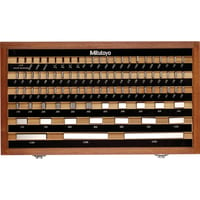
Gage blocks, also known as gauge blocks or slip gauges, are precision tools primarily used for dimensional measurement and calibration. These tiny yet mighty blocks are typically made from high-quality steel or ceramic materials, meticulously crafted to meet stringent tolerances and maintain exceptional accuracy. Gage blocks serve as the reference standard for calibrating various measuring instruments, such as micrometers, dial indicators, and height gauges. By using gage blocks as a benchmark, precise measurements can be obtained, ensuring accuracy in the measurement process. Gage blocks often act as a baseline for setting measurement standards in manufacturing processes. They help establish a common reference point, allowing manufacturers to maintain consistency and conformity in their products.
Go/No-Go Gauges
Go/No-Go gauges are precision instruments used to check the conformity of manufactured parts. They consist of a "Go" end, which represents the upper tolerance limit, and a "No-Go" end, representing the lower tolerance limit. If the part under inspection fits the "Go" end but fails to fit the "No-Go" end, it is considered within tolerance. However, if it fits the "No-Go" end, it is deemed out of tolerance and rejected. Go/No-Go Gauges are used to determine whether a component meets the required specifications or if it falls outside the acceptable tolerance range.
Chamfer Gages
A chamfer gage is a specialized measuring tool that helps determine the dimensions of chamfers on a workpiece. A chamfer is a beveled or angled edge, typically created to facilitate easy assembly, reduce sharpness, or enhance the aesthetics of a workpiece. Chamfer gages allow us to measure the angle and size of chamfers accurately, ensuring precision and uniformity in manufacturing processes.
Precision Measuring Blocks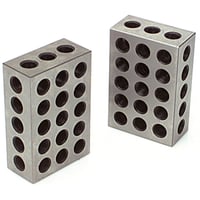
Precision measuring blocks are fashioned with extreme precision, allowing you to measure with confidence. They offer consistent dimensions and flat surfaces, aiding in accurate readings and minimizing errors. Whether you're a machinist, carpenter, or hobbyist, precision measuring blocks are invaluable across a range of disciplines. From setting up machinery, adjusting table saw fences, or measuring thickness, these set up blocks can handle it all. Using precision measuring blocks eliminates the need for multiple trial and error attempts. They provide reliable reference points, streamlining your workflow and reducing the frustration of rework. Extremely versatile and handy, precision measuring blocks including 123 blocks and 246 blocks are a must-have across many industries.
Angle Gages
An angle gage, also known as an angle finder or bevel gauge, is used to measure and replicate angles accurately. It consists of two arms, one fixed and the other adjustable, that can be locked in place to determine the angle between them. Angle gages come in various shapes and sizes, depending on the specific application. Most commonly used angle gages include the protractor style angle gage, combination square, and digital angle gage.
Conclusion
Precision measuring tools are the unsung heroes of industrial manufacturing, ensuring accuracy and quality in every step of the manufacturing process. Rely on A&M Industrial for a wide range of precision measuring instruments from trusted brands including Starrett, Mitutoyo, ProCheck, Insize, Fowler, and more.
Starrett Precision Measuring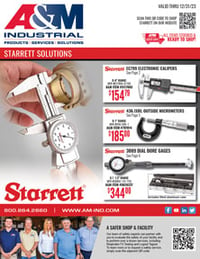
For a limited time only, save on select Starrett Precision Measuring Essentials, including Starrett Calipers, Starrett Micrometers, Starrett Measuring Sets and more. For assistance with selecting the right precision measuring tool for your application, contact the A&M Industrial Metalworking Team.
